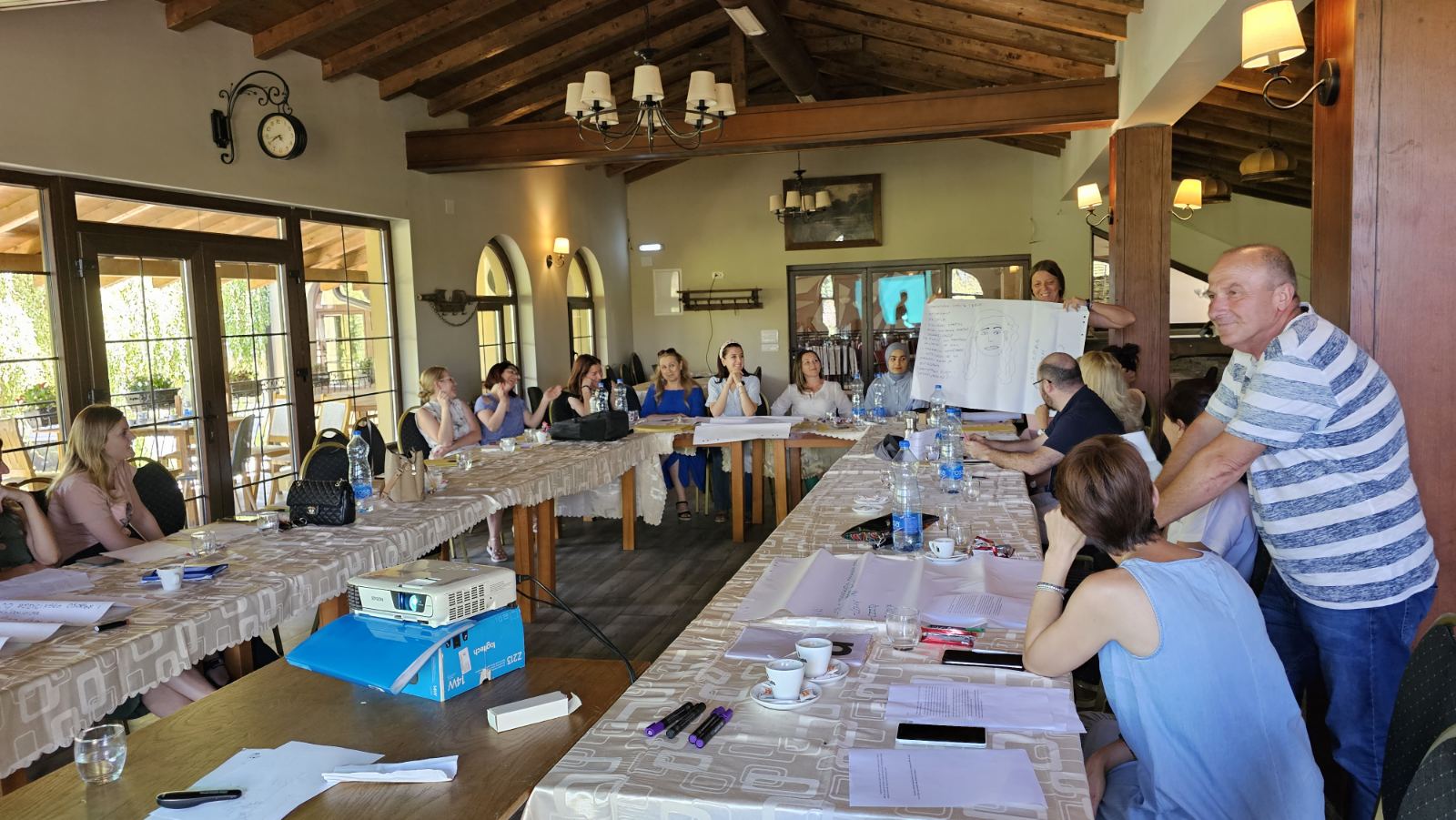Hotline: +381 61 63 84 071
Practitioners in Combating Human Trafficking with a Special Focus on Migration

Practitioners in Combating Human Trafficking with a Special Focus on Migration
The second training session, "Practitioners in Combating Human Trafficking and Gender-Based Violence with a Special Focus on Migration," was held in Bujanovac on July 20 and 21, 2023. The Association Atina conducted this training as part of the project "Improving Referral Mechanisms and Services for Refugees and Migrants Victims of Gender-Based Violence and Human Trafficking in Serbia," supported by the British Embassy in Belgrade.
The training gathered 27 representatives from various organizations and institutions from the Bujanovac and Preševo areas. Participants included representatives from the Center for Social Work and local and international organizations, with 18 participants from local institutions and nine from local and international organizations. Gender-wise, 18 women and nine men participated.
Jelena Hrnjak from the Association Atina opened the training, presenting the goals and work plan for the next two days. Through interactive exercises and lectures, participants enhanced their knowledge of recognizing and reporting potential victims of human trafficking and gender-based violence, with a particular focus on the migrant population.
Guest lecturers included experts from various fields: Gorjana Mirčić Čaluković, Jelena Šurlan, Goran Todorović, Slobodan Savić, and Miroslav Jovanović. The lectures covered multisectoral cooperation, legal regulations, operational procedures, femicide, and specific challenges in working with the migrant population.
The training evaluation showed that participants significantly improved their knowledge and skills. Recommendations were made to strengthen civil society organizations' capacities for timely response, clearer standard operating procedures, continuous knowledge improvement of professionals, and healthcare workers' responsibility in reporting suspicious indicators.
Recommendations and Suggestions from the Training:
1. Importance of understanding relevant legal procedures and regulations related to the rights and protection of victims of gender-based violence and human trafficking;
2. Networking of all relevant actors at the local and national levels;
3. Significance of medical documentation and recording injuries, as well as reporting them to relevant institutions;
4. Applying a victim-centered approach;
5. Organizing more interactive training sessions to facilitate networking among all relevant actors.
This training represents a significant step towards better identification and protection of victims of human trafficking and gender-based violence in migrant and refugee populations while also strengthening cooperation between local organisations, state institutions, and international partners.












 FACEBOOK
FACEBOOK TWITTER
TWITTER YOUTUBE
YOUTUBE